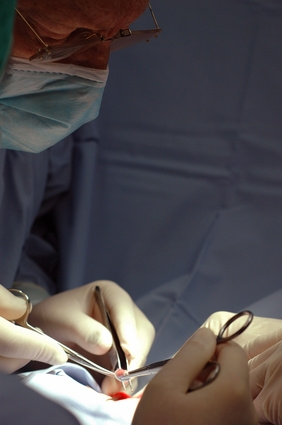Do you have a pet, or are you planning on buying one? Either way, there's a huge likelihood that you will visit a pet shop. However, there are things you have to look out for when you are visiting pet shops. Not all pet shops are the same because they differ on a few aspects, depending on a lot of things. Shopping for pets or pet items can be a hassle if you are not aware of what to look out for in pet shops. This article will give you the ten things you should consider when going to a pet shop.
Cleanliness
You don't want to buy from a pet store if the pet shop is filthy, especially if you intend to buy a pet. Check if the animal cages in the pet shop are clean. If an animal has been staying in a cage that is very dirty for a long time, then it will smell bad and might even carry some diseases. You want your pet to be healthy, lest you want to be burdened with veterinary fees. The overall cleanliness and hygiene of a pet shop is crucial in considering whether or not you will be purchasing anything from the shop.
Reputation of the Shop
The reputation of a pet store really makes a difference when you're looking for a pet, or accessories for your pet. Ask your friends or relatives which pet shops would be best to visit. Are the animals and pet items priced reasonably? Are the items animal-friendly and would not cause irritation on the animals?
Be Practical
It is important that you have to take care of your pets. But it doesn't mean that you should spend much on the things they need. Don't just go with the advertising ploy of irresponsible pet shops that push for certain pet items which might not in fact be necessary. Buy only items that your pet needs. If the pet shop is over-eager to sell something to you, it is better to look for another shop.
Sources
Find the origin and source of the animals the pet shop sells. You have to determine if the animals came from a healthy background, or have been mistreated or abused. If you don't check the source of the animal you want to buy, you may encounter problems later when the pet doesn't turn out to be the way you wanted it to be.
Animal Feeding
The kind of food fed to the animal by the pet shop is likewise crucial. The same thing applies to the frequency the animal is being fed. The animals should receive fresh and healthy food regularly. Stale food can make them sick and disease-prone. You might be the one to bear the veterinary fees if the animal becomes ill after your purchase.
Noise and Wider Playing Space
Most pet shops are noisy. There are also congested shops with small spaces for the animals to move around. Animals like to play and run around. Movement makes them healthy physically and mentally. On the other hand, a noisy surrounding makes the animal frightened or aggressive. So, choose a spacious shop with spacious cages for animals, and surroundings that are not overly noisy. This way, the animals there would not assume an erratic attitude.
Vaccinations
There are pet shops which have their pets vaccinated numerous times already. Too many vaccinations would, in fact, be bad for the health of the animals. Ask the shp how many times they have vaccinated their animals, and for what diseases.
Following Rules
Pet shops are regulated by laws and rules. These rules are issued to ensure the sanitation, safety, and health of the animals. The pet shop you visit must comply with all these rules, and have its animals inspected by government agents. A pet shop that violates government laws might be selling an illegally transported animal, or worse, a carrier of a dangerous disease.
Equipment
Check if the pet shop has all the necessary equipment to properly handle and care for the animals. If it doesn't have these important tools, chances are that its pets were not well taken care of. You would be bearing the trouble if your pet gets sick later. It may cost you additional expense, and lead to the loss of your pet.
Veterinary Care
There are pet shops that provide in-house veterinary services, while others seek veterinary care only when needed. The worst kind of shop is the shop that does not give veterinary care for their animals. Find out if the shop you are going to visit has arrangements with an animal healthcare provider.
The bottom line is that if you don't take care when you buy a pet, you and your pet can end up very sorry indeed. A pet is a pet for life and veterinary bills can be prohibitively expensive so think carefully about what decision you make at the pet store.

 How to Take Care of a Bird
How to Take Care of a Bird
How to Take
How to Take Care of a Bird
How to Take Care of a Bird
How to Take
 Cat Adoption - Budget Worksheet
Costs will va
Cat Adoption - Budget Worksheet
Costs will va
 How to Care for Dissolvable Stitches After Spaying
How to Care for Dissolvable Stitches After Spa
How to Care for Dissolvable Stitches After Spaying
How to Care for Dissolvable Stitches After Spa
 Bad Human! Training Yourself to Train Your Dog
One of my mot
Bad Human! Training Yourself to Train Your Dog
One of my mot
 Biting: Causes, Prevention, and Control
The Centers f
Biting: Causes, Prevention, and Control
The Centers f